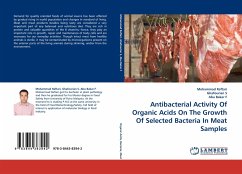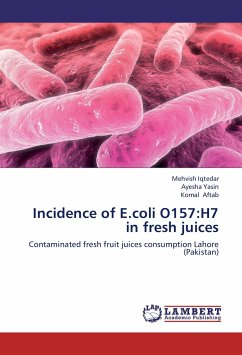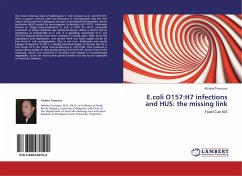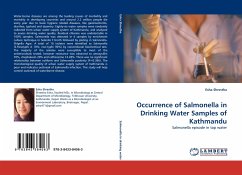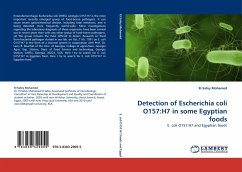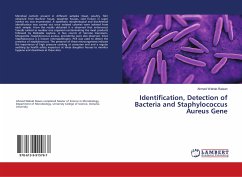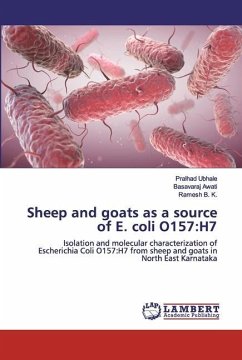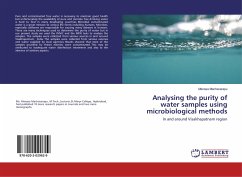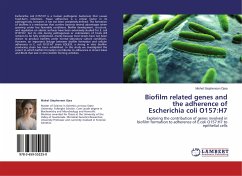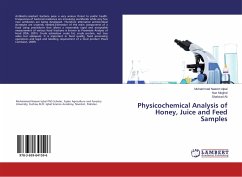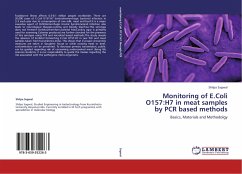
Monitoring of E.Coli O157:H7 in meat samples by PCR based methods
Basics, Materials and Methodolgy
Versandkostenfrei!
Versandfertig in 6-10 Tagen
39,99 €
inkl. MwSt.

PAYBACK Punkte
20 °P sammeln!
Foodborne illness affects 6.5-8.1 million people worldwide. There are 20,000 cases of E.Coli O157:H7 (enterohemorrhagic bacteria) infection in U.S each year due to consumption of raw milk, meat and beef.It is a major causative agent of HUS(Hemorrhagic Uremic Syndrome)and infection also leads to neurological diseases,comma and bloody diarrhea.This serotype does not ferment Sorbitol,therefore,Sorbitol MacConkey agar is primarily used for screening.Colonies produced are further checked for the presence of this serotype using PCR and microbial based methods.The study reveals the absence of Sorbito...
Foodborne illness affects 6.5-8.1 million people worldwide. There are 20,000 cases of E.Coli O157:H7 (enterohemorrhagic bacteria) infection in U.S each year due to consumption of raw milk, meat and beef.It is a major causative agent of HUS(Hemorrhagic Uremic Syndrome)and infection also leads to neurological diseases,comma and bloody diarrhea.This serotype does not ferment Sorbitol,therefore,Sorbitol MacConkey agar is primarily used for screening.Colonies produced are further checked for the presence of this serotype using PCR and microbial based methods.The study reveals the absence of Sorbitol fermenting E.Coli O157:H7 in raw fish and meat samples taken from Kurukshetra,India. This shows that if proper preventive measures are taken in slaughter house or while cooking meat or beef, contamination can be prevented. To decrease primary transmission, public can be guided regarding risk of consuming undercooked meat. Being life sciences students, it is our responsibility to guide the masses regarding the risk associated with the pathogenic micro-organisms.



